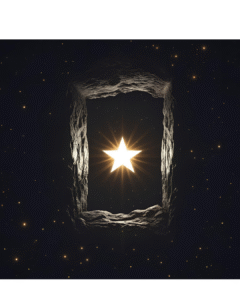There’s a part of me that doesn’t trust love. And that didn’t just happen overnight. It was built — brick by brick — through years of abandonment, performance, manipulation, and betrayal. I didn’t wake up one day with a dismissive avoidant attachment style. I was shaped into it. Molded by environments that taught me emotions weren’t safe, that connection meant sacrifice, and that being wanted came with a price.
I was 11 when I went to boarding school. At first, I was excited — my best friend was going too, and I thought it would be an adventure. But that illusion shattered quickly. The school was elite, protestant, strict. On paper, it was a privilege. In reality, it was a cold, isolating place where I quickly learned that survival meant silence. There was no privacy — not in the dorms, not in the showers, not even in your mind. The rules were rigid. The expectations were high. The affection was nonexistent.
So I adapted. I became the “perfect student.” I followed every rule, buried every feeling, smiled when I needed to, and learned how to shut myself down. It was the only way to cope. I did that for three years — until something inside me cracked. A boy arrived. A bad boy. And something in me was drawn to his chaos like it was fire and I needed to burn. I chased him. Smoked. Drank. Skipped class. Lied. All for his attention — because that attention felt more real than the numbness I’d been living in.
It was toxic. And it set the tone for every relationship that came after.
I left school and jumped straight into another relationship. Not because it was healthy or kind, but because it gave me something to hold onto. Even after that relationship ended, I kept going back, making him cheat on every girlfriend he had after me. I told myself it was power, but really, it was desperation — a deep need to feel special, to feel chosen, even if it came at someone else’s expense.
Recently came the narcissist. A relationship that drained me, hollowed me out, convinced me that love meant constantly proving myself worthy.
By the time my most recent relationship came, I had mastered the art of being fiercely independent — and emotionally unavailable. I craved love, yes. I wanted connection. But I didn’t trust it. I didn’t know what healthy love even looked like. And so, I stayed alone for years. Watching my friends fall in and out of relationships while I sat on the sidelines, pretending I didn’t care. Secretly jealous, deeply bitter, and totally convinced I wasn’t the one people chose.
But here’s the twist: despite all this — despite the distance I keep and the walls I’ve built — I’m also incredibly loyal. I hold onto people for too long. Even when they hurt me. Even when the friendship or relationship has rotted from the inside. I stay. I give them the benefit of the doubt. I remember their good sides. I believe in them longer than I should.
And yet… once I finally walk away? That’s it. I don’t look back. I don’t linger in regret. I don’t reach out. I shut the door and walk away without apology. It’s a strange contradiction: this deep loyalty and devotion, and then this cold detachment. But I see now that both were born from the same place — survival.
Boarding school taught me to rely on no one. Toxic relationships taught me that love comes with pain. So I learned to shut down. To hold on tight when I care — but to never fully trust that anyone will stay. And when it becomes too much, when I’ve given too much, when the balance tips — I cut the cord to save myself.
This is the shape of my wounds. This is what survival looked like for me.
But I’m tired. I’m tired of pretending I’m okay. I’m tired of confusing silence with strength. I’m tired of guarding my heart like it’s a crime scene, terrified anyone who steps in will make it worse. Writing this hurts, but it also releases me. These truths have been buried for too long.
It all makes sense now. This is dismissive avoidant attachment. I keep people close, but not too close. I love deeply, but I also fear needing anyone too much. I crave intimacy, but I don’t know how to sit comfortably in it. And every time someone gets too close, I find myself backing away, slowly — or suddenly slamming the door.
I used to think I was broken. I used to think I was just “too much” or “not enough.” Now, I see the patterns. I see how that 11-year-old girl who boarded the bus every Sunday night with a pit in her stomach is still inside me, learning to trust that she doesn’t have to perform or shut down to be safe.
Writing this hurts. I’m crying as I type. But I’m also letting go. These truths have lived heavy in my chest for too long, and now I’m putting them down. Not because they’re gone, but because they no longer need to control me.
I don’t know exactly how to heal. But I do know that naming the pain is the first step. And if you see yourself in these words — if you’ve lived behind the same kind of walls — then maybe it’s your first step too.




